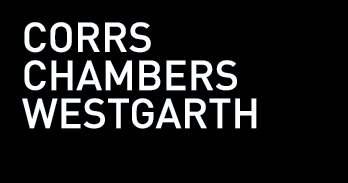This week’s TGIF considers the recent decision of the Federal Court which concerned the proper distribution of sale proceeds and whether those proceeds comprised part of the “property of the company”
WHAT HAPPENED?
Bamboo Direct Pty Limited (Bamboo), a company engaged in the business of purchasing and importing solar hot water heaters and solar panels, was placed into liquidation on 11 July 2012.
As part of its business, Bamboo created, sold and monitored “Small-Scale Technology Certificates” (STCs) that were regulated under the Renewable Energy (Electricity) Act 2000.
Customers who installed certain hot water heaters and solar panels were eligible to create STCs and, in return for a point of sale discount or agreed payment, assigned this right to Bamboo.
The liquidator sought to sell the STCs during the course of 2013 which resulted in net sale proceeds of $739,428.73.
APPLICATION TO THE COURT
The liquidator of Bamboo brought an application under s 511 of the Corporations Act 2001 (Cth) (the Corporations Act) which sought, inter alia, a declaration that the sale proceeds comprised “property of the company”.
In the alternative, the liquidator sought a declaration that the proceeds were held on trust for up to 359 customers identified from the books and records of Bamboo who may not have been paid for the STCs they had assigned to Bamboo.
At the hearing, the liquidator submitted that the correct position was that the proceeds comprised “property of the company”.
NOTIFICATION OF INTERESTED PARTIES
Prior to hearing the application, Justice Gleeson ordered that the liquidator take steps to notify the 359 customers of the application before the Court.
Two parties were granted leave to be heard in the proceeding, without becoming a party to the proceeding:
- ANZ Banking Group Ltd (ANZ)– a secured creditor of Bamboo; and
- Mr Carroll, a potential claimant customer.
ANZ agreed with the liquidator’s position, however, Mr Carroll claimed that the monies from the sale of his STCs were held by the liquidator on his behalf.
POWER TO MAKE SUBSTANTIVE ORDERS AFFECTING THIRD PARTIES
As a preliminary question, Justice Gleeson considered whether the Court had power to grant relief affecting parties who had been granted leave to be heard in the proceeding without becoming a party to the proceeding.
Her Honour was not satisfied that it would be appropriate to grant declaratory relief without joinder of affected parties.
COMMON PROPERTY OR TRUST PROPERTY?
The relevant question before the Court was whether the proceeds generated by the sale of the STCs were property of the company, or whether Bamboo held the proceeds on trust for the customers.
On Mr Carroll’s behalf, it was submitted that the assignment document, considered in the statutory context, demonstrated that the proceeds from the sale of the STCs would be remitted to the customer and the assignment of the right to create the STCs was for an express purpose – to create, sell and pay the...the proceeds of the sale. Therefore, there was a sufficiently clear intention for the creation of an express trust.
The liquidator argued that the reference in the assignment document that consideration would be received “in exchange for assigning” had no bearing upon the assignment effected and, if such consideration had not been received, the proper claim was for breach of contract against Bamboo, such claim being now admissible to proof against the company.
THE DECISION
Her Honour rejected Mr Carroll’s position that a trust arose as a matter of objective intention because:
- the assignment was made for the purpose of obtaining a right to specified consideration rather than a right to proceeds of sale;
- there was no reference in the documents to the remittal of monies from the sale nor a trustee / beneficiary relationship; and
- there was no evidence to suggest an agreement that the proceeds of sale of the STCs would not be mixed with the general funds of the company.
In making this determination, the Court noted that the Corporations Act does not specify what assets held by the company being wound up are exempt from the liquidator’s control, however, under general law, property held in trust by the company for another is exempt, including property of the company in which another person has an equitable interest.
COMMENT
This case reminds us of the powers of the Court under s 511 of the Act and the ability of the liquidator to seek guidance as to how particular property should be distributed.
Furthermore, whilst these powers may extend to questions about how particular property should be treated, the Court will generally be reluctant to grant declaratory relief without the joinder of affected parties.






